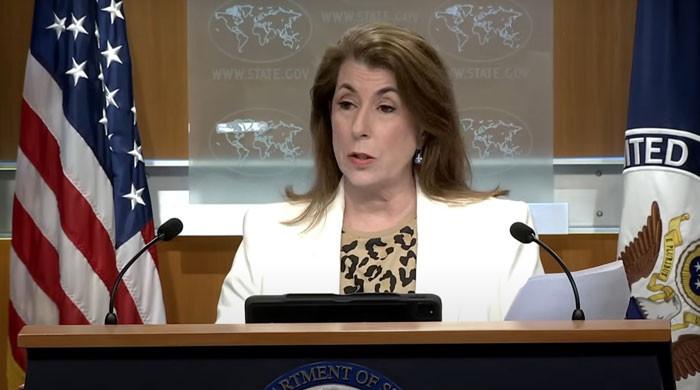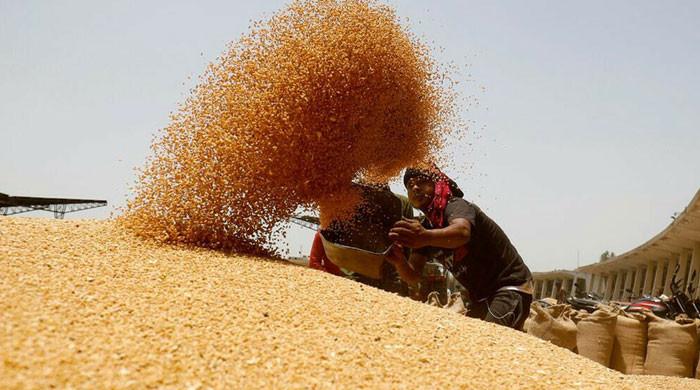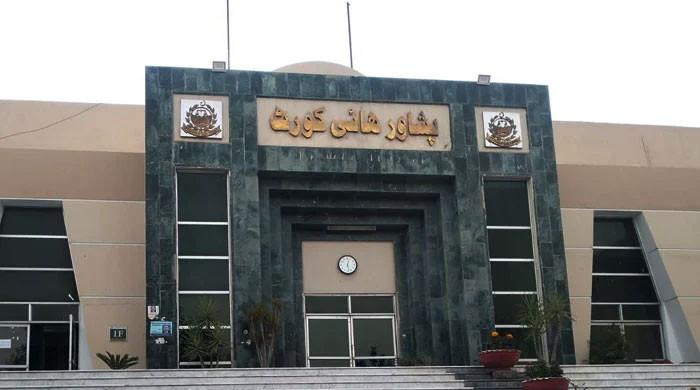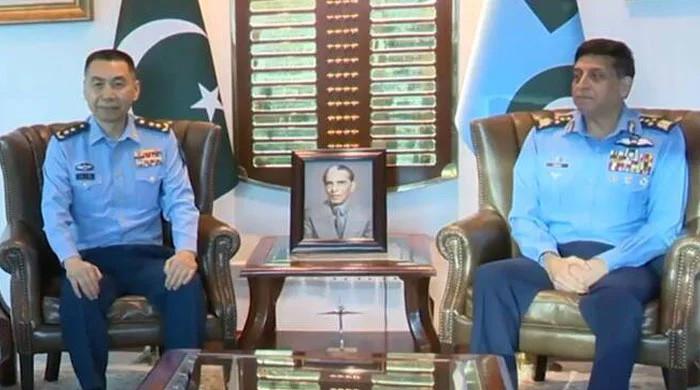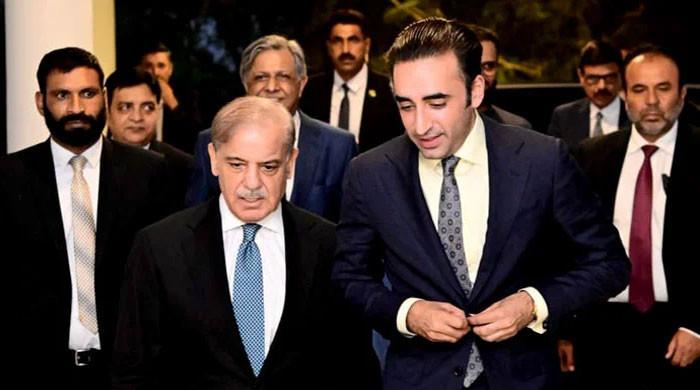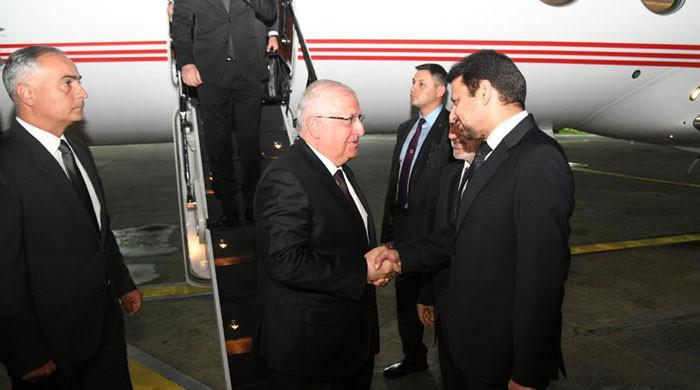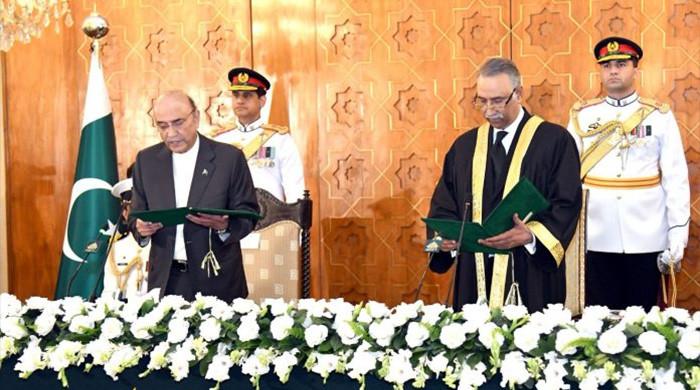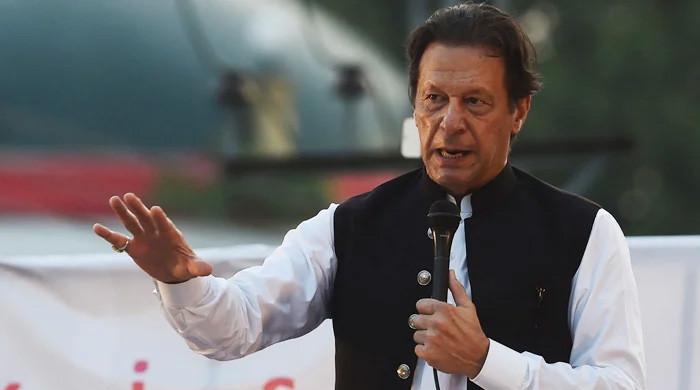Asif Zardari, PM Shehbaz 'agree' on taking tough decisions to revive economy
The two leaders discussed the probable political aftermath of tough economic decisions
January 26, 2023
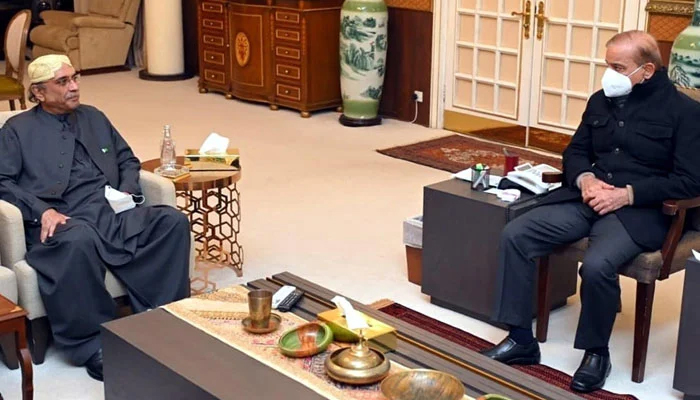
- Ishaq Dar briefs participants on economic situation, said sources.
- Zardari, Shehbaz agree on reviving economy and taking tough decisions.
- Participants decide to ensure mechanisms to keep inflation under control: sources.
ISLAMABAD: Former President Asif Ali Zardari called on Prime Minister Shehbaz Sharif to discuss the overall political and economic situation of the country, reported The News on Thursday.
In the meeting held in Prime Minister House Islamabad, the Pakistan Muslim League president (PML-N) and the Pakistan Peoples Party (PPP) co-chair strategised the revival of the economy and the aftermath of the politically challenging economic decisions expected to be taken by the PM in a bid to revive the stalled International Monetary Program's (IMF) loan programme.
Finance Minister Senator Ishaq Dar, Economic Affairs Minister Sardar Ayaz Sadiq and Railways Minister Khawaja Saad Rafique, and Senator Saleem Mandviwala from the Pakistan Peoples Party (PPP) were also present at the meeting.
The two leaders also discussed the political scenario in Punjab and Khyber Pakhtunkhwa after the formation of the caretaker governments. Their participants reached a consensus that the revival of the economy should be the priority of the coalition government.
Sources said Finance Minister Ishaq Dar briefed the participants regarding the economic situation and what impact would the hard decisions have. However, the participants decided to ensure a mechanism that keeps inflation under control, they added.
The tough decisions
The difficult decisions needed to be taken to revive the IMF programme include raising the power and gas tariffs, enhancing tax collection, imposition of a petroleum development levy, a market-determined dollar rate and more.
On Wednesday, following the removal of the unofficial cap on the greenback, the rupee fell further against the dollar, depreciating almost 1%.
The rupee closed at 243 against the dollar, falling 2.25 or 0.92%, the Exchange Companies Association of Pakistan (ECAP) said in a statement, compared with a range of 237.75-240 at the close on Tuesday.
According to a The News report, the gas tariff is also expected to increase from Rs650 per MMBTU to Rs1,100 per MMBTU on average.
The government, to control the SNGPL and SSGCL's monstrous circular debts of Rs1,640 billion, plans to recover Rs800 to Rs850 billion via the new price hike.
Meanwhile, in the power sector, the government is considering raising the electricity tariff from Rs4.50 per unit in the first phase and Rs3 per unit in the second phase within the ongoing fiscal year.
The government's envisaged FBR tax collection target was Rs7,470 billion, however, FBR fell short by Rs225 billion until December. The collection in line with the IMF’s target was missed out by a margin of Rs82 billion for the end of December 2022.
The PML-N government plans to slap a 1%-3% flood levy on imports to fetch Rs100 billion.
Secondly, the government is also considering slapping a 60% to 70% tax on commercial banks' alleged earnings through manipulation of the exchange rate. The banks estimated earned around Rs100 billion in extraordinary profits in the first nine months of the calendar year 2022.
An increase in the Federal Excise Duty (FED) on sugary beverages, and cigarettes and slapping GST on POL products is also on cards. However, in the recent past, Finance Minister Ishaq Dar sternly opposed slapping 17% GST on POL products, arguing that it would be highly inflationary.




